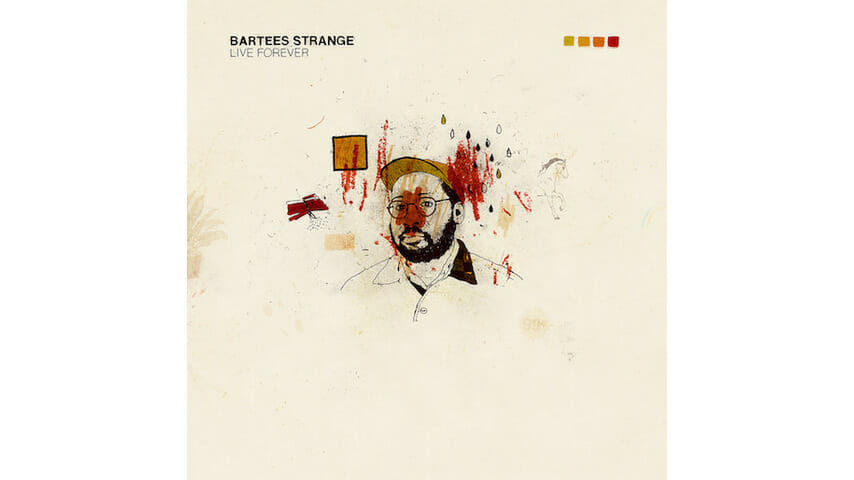Bartees Strange’s Live Forever Refuses to Conform
The Brooklyn musician’s hyped debut album is flowing with past traditions and new sonic possibilities

We live in an era when intersectionality is either fiercely celebrated or rejected, and Spotify playlists are the norm—especially for young music listeners. These conditions are perfect for an album like Live Forever by Bartees Strange, a Brooklyn musician whose work is a tapestry of traditions, ideas and sounds.
Back in 2017, he released an album called Magic Boy under the name Bartees & The Strange Fruit. While most of the songs could be characterized as acoustic folk, there were several hints—some subtle and others blatant—that Strange was only showing us the tip of the iceberg. Aggressive vocals and waves of experimental distortion rang out on “Eat Your Heart,” and “Best of You” mixed emo vocals, horns and an odd, pitch-shifted outro. You could already hear Strange’s shell beginning to crack.
After rebranding as Bartees Strange, he released an EP titled Say Goodbye to Pretty Boy, which reimagined songs by The National from the perspective of a Black musician in an overwhelmingly white indie rock space. As fans and writers like Paste contributor Erica Campbell have explained, Black people have a unique, but no less meaningful, connection to music made by white rock musicians. It’s a complicated relationship as rock ‘n’ roll owes everything to Black rhythm and blues artists—many of whom never received their due praise, fame or money—and it’s one that should be constantly acknowledged and celebrated.
Strange’s versions of songs like “Lemonworld” and “Mr. November” bring a totally different imagination and presence compared to the originals, utilizing warmer vocal tones and emphasizing lyrics that weren’t before. Both his passion and vocal talent were evident. On his debut album Live Forever, Strange climbs even higher mountains, questioning conventions, styles and personal politics. But for someone who emerged from Washington D.C.’s rich, often subversive music scene, this is no surprise.
-

-

-

-

-

-

-

-

-

-

-

-

-

-

-

-

-

-

-

-

-

-

-

-

-

-

-

-

-

-

-

-

-

-

-

-

-

-

-

-








































